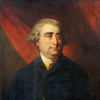Charles James Fox

Charles James Fox
Charles James Fox PC, styled The Honourable from 1762, was a prominent British Whig statesman whose parliamentary career spanned 38 years of the late 18th and early 19th centuries and who was the arch-rival of William Pitt the Younger. His father Henry, a leading Whig of his day, had similarly been the great rival of Pitt's famous father. He rose to prominence in the House of Commons as a forceful and eloquent speaker with a notorious and colourful private life,...
NationalityEnglish
ProfessionPolitician
Date of Birth24 January 1749
How much the greatest event it is that ever happened in the world! And how much the best!
Any thing that proves that it is not in the power of Kings and Princes by their great armies to have every thing their own way is of such good example that without any good will to the French one can not help being delighted by it, and you know I have a natural partiality to what some people call rebels.
Illustrious man! deriving honor less from the splendor of his situation than from the dignity of his mind.
Peace is the wish of the French of Italy Spain Germany and all the world, and Great Britain alone the cause of preventing its accomplishment, and this not for any point of honour or even interest, but merely lest there should be an example in the modern world of a great powerful Republic.
Our Sovereign's Health, the Majesty of the People.
[Napoleon has now] surpassed...Alexander & Caesar, not to mention the great advantage he has over them in the Cause he fights in.
Bonaparte's wish is Peace, nay that he is afraid of war to the last degree.
There is not a power in Europe, no not even Bonaparte's that is so unlimited [as the British monarchy].
So fully am I impressed with the vast importance and necessity of attaining what will be the object of my motion this night, that if, during the almost forty years that I have had the honour of a seat in parliament, I had been so fortunate as to accomplish that, and that only, I should think I had done enough, and could retire from public life with comfort, and the conscious satisfaction, that I had done my duty.
There is a spirit of resistance implanted by the Deity in the breast of man, proportioned to the size of the wrongs he is destined to endure.
I prefer the hardest terms of peace to the most just war.
a greater evil than the restoration of the Bourbons to the world in general, and England in particular, can hardly happen.
Kings govern by popular assemblies only when they cannot do without them.
Toleration in religion was one of the great rights of man, and a man ought never to be deprived of what was his natural right.